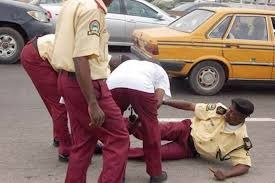Motoring
Honda Delays Construction of $530 Million Thai Plant at Least Six Months

BANGKOK – In one of the most significant signs yet that Thailand’s political turmoil is taking a toll on its all-important auto industry, Japan’s Honda Motor Co. said it will delay construction of a $530 million auto assembly plant by at least six months in the Southeast Asian nation.
The delay of the assembly plant, Honda’s third in the country, is due to “rapid changes” in Thailand’s auto market and the auto maker is trying to “respond and address the change as fast as we can,” said Pitak Pruittisarikorn, chief operating officer of Honda Automobile Thailand Co., in an emailed statement.
Mr. Pitak wasn’t immediately available to answer additional questions on the delay Wednesday.
In March, at a Bangkok auto show, Mr. Pitak said determining how many cars to produce in Thailand, Honda’s manufacturing hub for Southeast Asia, can be difficult because of the “political uncertainty and the fact that we don’t know when it’s going to end.”
“Consumer spending has declined, both in terms of spending power and the willingness to spend,” he said.
Thailand’s political stalemate, which has entered its sixth month, is weighing on the country’s economy and undermining the appeal of Southeast Asia’s largest auto-production hub. In March, Thailand’s auto production fell 29% from a year earlier while sales dropped 47% from a year earlier, an auto-industry group reported.
The country has long been attractive for car production because of its more than 50-year-old auto supply chain and its central location in the region. Auto makers including Honda, Toyota Motor Co. and Ford Motor Co. manufacture cars in Thailand for export throughout Southeast Asia, a region that global auto makers expect to be a key engine of growth.
But analysts warn that the political unrest could hurt car sales and jeopardize Thailand’s goal of producing 3 million cars by 2017.
Weak domestic demand has already led truck maker Hino Motors Ltd. to warn that it would scale back production in Thailand. Hino’s parent, Toyota, has also said it may need to rethink an investment of up to 20 billion baht ($610 million) to expand capacity.
Meanwhile, at least half a dozen auto makers, including General Motors Co., Ford and Toyota, have warned of a sales hit due to the political unrest and the end of a government stimulus for first-time auto buyers. About a dozen foreign manufacturers are also delaying land purchases, said Amata Corp. AMATA.TH 0.00% , one of Thailand’s largest industrial-park developers, in January.
Honda’s Mr. Pitak said he now expects Thailand’s overall auto sales in 2014 to drop 25% from last year’s 1.33 million cars, a significant revision from earlier this year, when Honda projected a drop of about 15%.
The Japanese auto maker’s plan to open a third assembly plant in Thailand was seen as a sign of its confidence that Southeast Asia’s swelling middle class would propel demand for cars.
Honda Motor Co. Chief Executive Takanobu Ito, at a July ceremony for the assembly plant in Prachinburi province in eastern Thailand, said the country is “an important R&D and production base and is one of our key markets.”
The factory, which was scheduled to begin construction this spring, would have an annual capacity of 120,000 vehicles, bringing Honda’s total production capacity in Thailand to 420,000 units by 2015. The plant will manufacture primarily sub-compact models for sale in Thailand as well as for export to Southeast Asia, Oceania and the Middle East.
– WALLSTREET JOURNAL
Motoring
FCTA Pulls Plugs On Taxi Rank, Terminal Services Contracts

The Federal Capital Territory Administration (FCTA) has ended contracts with taxi rank and terminal operators due to their failure to meet engagement terms and conditions.
Mr. Ubokutom Nyah, the Mandate Secretary of the Transportation Secretariat, FCTA, made this announcement during a meeting with managers of these terminals and taxi ranks in Abuja.
Nyah clarified that due to the operators’ failure to fulfill their engagement terms, the FCTA had to terminate their contracts.
He instructed them to transfer control of the ranks to the Administration within three months, starting from Nov. 21.
He lamented the presence of unauthorized motor parks in the city and assured the readiness of the Administration to establish proper taxi ranks and terminals in the capital.
He revealed that personally visiting the city’s taxi ranks, terminals, and unauthorized motor parks gave him direct insight into the poor condition of these facilities.
He emphasized that as the federal capital city, Abuja deserves better, highlighting that the poor condition of these facilities attracts various criminal elements.
He said “We must rid Abuja of all these. I have gone round the taxi ranks, and of all the places I visited, not one is worthy to be called even a village motor park.”
The Mandate Secretary stressed that the intention wasn’t punitive; rather, it aimed to revamp the sector, introduce new engagement terms, and modernize taxi ranks and terminals in the federal capital.
He also highlighted the plan to increase the number of terminals and ranks where necessary, which would positively impact the administration’s revenue.
He emphasized that this measure was part of a broader effort to eliminate illegal motor parks in Abuja and curb the associated criminal activities.
In response, Mr. Adebisi Lawal, the Operator of Jahi Taxi Rank, praised the administration’s initiative to modernize the taxi ranks and terminals.
Lawal urged the administration to prioritize current operators’ involvement in the selection of new developers for the modernization of the taxi ranks and terminals.
Motoring
Power Show Sees Soldiers Batter LASTMA Officer

It was a show of power at the Ojota area of Lagos on Monday as soldiers pummeled an officer of the Lagos State Traffic Management Authority, (LASTMA).
Eyewitness accounts claim that the ugly scene played out around 8am, and saw about eight soldiers pounce on the yet to identified LASTMA official, while his colleagues took to their heels.
The video of the melodrama has gone viral, where the LASTMA official was appealing to the soldiers, who appeared bent on ‘teaching him a lesson’.
This onslaught comes on the back of a reported assault of a soldier at the same location by LASTMA officials last week.
It would appear that what played out today was the army asserting its authority and defending their khaki as the armed soldiers carried out what looked like a revenge mission.
Eyewitnesses further averred that the victim was rushed to a nearby hospital, after the soldiers left the scene.
It was gathered that the authorities at LASTMA has reported the incident to the military authorities who are said to be looking into the matter.
Meanwhile many members of the public are rejoicing that the soldiers have taught the crude LASTMA official that power is stronger than power, for all their atrocities against motorists on Lagos roads.
Motoring
Intra-City Fares Skyrocket By 98% Month-On-Month – NBS
The impact of the removal of subsidy on Premium Motor Spirit (PMS), otherwise known as petrol, has seen the pump prices of the product skyrocket with a corresponding increase in the cost commercial transportation in Nigeria.
According to the National Bureau of Statistics (NBS), intra-city bus transportation fares across Nigerian cities, measured between May and June 2023, increased from N649.59 to N1,285.41 in June 2023.
This translates to 98 percent growth or N635.82 within the month in view.
The NBS made the data available in its Transport Fare Watch report for June 2023.
In the report, the NBS also shared the breakdown of bus journeys within the cities per drop for constant routes; bus journey intercity (state route); charges per person, amongst others.
On a year-on-year basis, the report has it that bus fares rose by 120.63 percent from N582.61 paid by commuters in June 2022.
The average fare paid by commuters for bus journey intercity per drop rose to N5,686.49 in June 2023 compared to N4,002.16 in May 2023 indicating an increase of 42.09 percent, month-on-month.
The report read, “The average fare paid by commuters for bus journeys within the city per drop increased by 97.88 per cent from N649.59 in May 2023 to N1,285.41 in June 2023.
On a year-on-year basis, it rose by 120.63 per cent from N582.61 in June 2022.
“In another category, the average fare paid by commuters for bus journey intercity per drop rose to N5,686.49 in June 2023, indicating an increase of 42.09 on a month-on-month basis compared to N4,002.16 in May 2023.
“On a year-on-year basis, the fare rose by 55.25 per cent from N3,662.87 in June 2022.”
Biztellers reported that the twin forces of forex pressure and increasing price of Brent in the global market would likely see the pump prices of petrol, increased again in no distant time in Nigeria.














